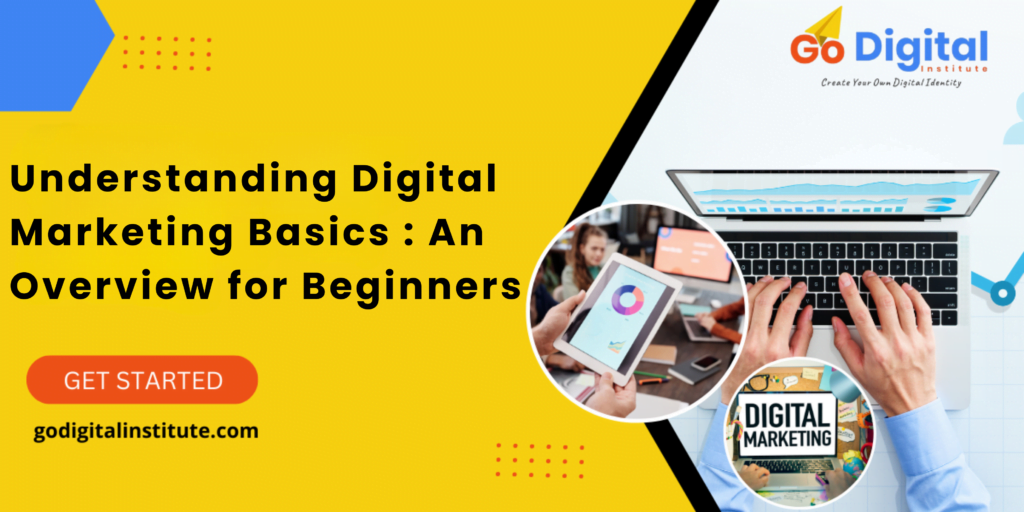It’s not merely a choice, but a need in the hectic world of business to adjust to the digital environment. Understanding the digital marketing basics is essential, whether you’re a small business owner, an enthusiast for marketing, or just interested in all things digital. To give newcomers a strong basis, we shall untangle the complexities of digital marketing fundamentals in this guide.
Digital Marketing Basics: What is it?
The art and science of promoting goods, services, or brands via digital platforms is known as digital marketing. Search engines, social media, email, websites, and more are some of these options. Digital marketing is an effective tool for companies of all sizes since, in contrast to traditional marketing, it makes use of online channels to reach a worldwide audience.
Important Elements of Digital Marketing Basics
Digital marketing is a broad field with many components, all of which are essential to the success of online advertising. Knowing these digital marketing basics is vital to navigating the ever-changing world of digital marketing, whether you’re a novice trying to get the hang of things or an experienced marketer reviewing what you need to know.
1.Search Engine Optimization (SEO)
The technique of improving your web content for search engines is known as search engine optimization, or SEO. Through knowledge and use of SEO fundamentals, you can improve your website’s rating, resulting in increased visibility and organic traffic.
2.Content Marketing
When it comes to digital, content is king. To draw in and keep the interest of a target audience, content marketers produce and distribute worthwhile, relevant data. A strong content marketing plan includes social media posts, videos, infographics, and blog entries.
3.Social Media Marketing
Social media networks are effective marketing tools and should not be limited to personal use. Social media sites like Facebook, Instagram, Twitter, and LinkedIn offer a wealth of chances for audience engagement, brand building, and website traffic.
4.Email Marketing
Email marketing is still a vital component of digital marketing, even with the emergence of newer platforms. It entails delivering focused messages to a list of recipients with the intention of fostering connections, advertising goods, and encouraging purchases.
5.Pay-Per-Click (PPC)
PPC advertising lets you run advertisements on social media and search engines. Every time an ad is clicked, advertisers are charged a fee. Creating advertising campaigns that are both cost-effective and result-driven requires a basic understanding of PPC.
Crafting Your Digital Marketing Strategy
Understanding your objectives, target market, and available resources is essential to developing an effective digital marketing plan. Here’s a detailed how-to:
1.Define Your Goals
Clearly state the goals you have for your digital marketing campaigns. Determining your goals will influence your approach, whether they are producing leads, boosting revenue, or raising brand awareness.
2.Know Your Audience
Determine and comprehend who your target market is. This covers internet activity, interests, and demography. Make sure your messaging and content are relevant to your target demographic.
3.Choose Your Channels Wisely
Every business is not suited for every digital marketing platform. Select the media channels where your target audience is most engaged and that support your goals.
4.Create Quality Content
The core of digital marketing is content. Provide valuable information that is useful to your audience and of high caliber. This will assist in establishing your brand as a leader in your sector.
5.Optimize for Search Engines
Use fundamental SEO techniques to make sure search engines can find your web content. This includes making your website user-friendly, improving your meta tags, and selecting pertinent keywords.
6.Measure and Analyze
To monitor the success of your online marketing campaigns, use analytics software. Track important data, including engagement, conversion rates, and website traffic. You can improve your strategy’s performance by analyzing this data.
Common Mistakes to Avoid
Be cautious of common mistakes when starting your digital marketing journey, such as undervaluing the significance of analytics, disregarding the impact of social media, and ignoring mobile optimization. Your journey to success will be paved with lessons learned from these errors.
Conclusion
Success in the constantly changing field of digital marketing depends on having a solid understanding of the fundamentals. Beginners can confidently navigate the digital world by grasping the digital marketing basic fundamentals, developing a wise plan, and avoiding typical mistakes. When used wisely, digital marketing can be more than simply a tool—it’s a strong ally that can help your company reach new heights in the digital age.


